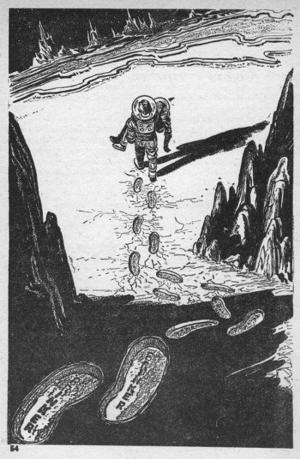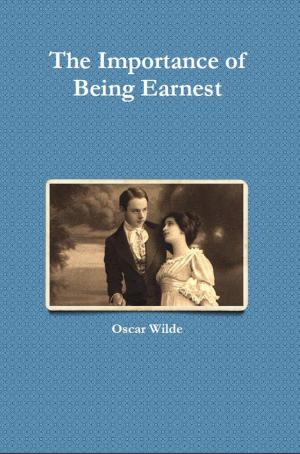| Author: | Fanny Burney | ISBN: | 1230000034309 |
| Publisher: | AP Publishing House | Publication: | November 30, 2012 |
| Imprint: | Language: | English |
| Author: | Fanny Burney |
| ISBN: | 1230000034309 |
| Publisher: | AP Publishing House |
| Publication: | November 30, 2012 |
| Imprint: | |
| Language: | English |
The Wanderer opens with a group of people fleeing the Terror. Among them is the protagonist, who refuses to identify herself. No one can place her socially—even her nationality and race are in doubt. As Burney scholar Margaret Doody explains, "the heroine thus arrives as a nameless Everywoman: both black and white, both Eastern and Western, both high and low, both English and French." She asks for help from the group, but because she knows no one, she is refused.
The protagonist, later identified as Juliet Granville, tries to become self-sufficient, but her story reveals the “difficulties” of a woman in her friendless situation. Women take advantage of her economically and men importune her. She is “a woman totally dispossessed by political events”. Miss Arbe, for example, takes control of Juliet's life and her money (although inexpertly); she also attempts to organize a ladies committee, becoming "a comic spectacle of political life". Specifically, Burney compares Miss Arbe to Robespierre: as Doody explains, "the arrangements of both become swallowed in egotism, are highly disorganized if impetuously directed, and are bound to end in failure". Throughout The Wanderer, Burney comments on the tyrannical hold that the rich have over the poor in England, showing how the wealthy will accept music lessons from Juliet but refuse to pay for them, placing her in a desperate situation. She also charts the downward spiral of Juliet from gentility to working woman; she begins as a musician and slips into the less-reputable positions of milliner and seamstress. In her cross-class analysis of the problems of women, Burney was probably influenced by Mary Wollstonecraft's Maria: or, The Wrongs of Woman (1798). However, according to Doody, "Burney is the first novelist seriously to express sympathy for the working women in their normal conditions of work—and to see how the system of employment, not merely individual bad employers, creates conditions of impossible monotony."
Elinor Joddrel is the antagonist of the story. She controls her own destiny, largely because she is an unmarried heiress, and articulates “feminist views on the economic and sexual oppression of women”. During the 1790s, novelists often portrayed feminist characters, sometimes as heroines, such as in Mary Hays’s Memoirs of Emma Courtney (1796), but more frequently as “grotesque satires” as in Elizabeth Hamilton’s Memoirs of Modern Philosophers (1800). In the character of Elinor, Justine Crump argues in her article on the novel for The Literary Encyclopedia, Burney represents feminist arguments, but she does not either explicitly criticize or endorse them. Doody, however, contends that Burney endorses Elinor's feminist arguments because no character contradicts them and Juliet appears to agree with them. When the two discuss women's issues, Juliet does not dispute Elinor's point of view, she adds more points to her argument.
Elinor falls hopelessly in love with Harleigh, the brother of her fiancé and a suitor of Juliet’s. Harleigh is uncertain whether he should propose to Juliet, as he knows nothing of her family and she earns money by giving young ladies music lesson and instruction on the harp. After Harleigh rejects her, Elinor “abandons decorum altogether”; she dresses up as a man and frightens Juliet with her threats of suicide. It is Harleigh who discovers Juliet’s true identity—she is the daughter of a “clandestine” marriage of the Earl of Granville. She was raised in France and forced to marry a revolutionary in order to save her guardian from the guillotine. Juliet fled the marriage, but her husband pursued her, believing that she would inherit the Granville fortune. The Granville family knows of her predicament, but refuses to help her. Harleigh abandons Juliet after discovering that she is married.
The Wanderer opens with a group of people fleeing the Terror. Among them is the protagonist, who refuses to identify herself. No one can place her socially—even her nationality and race are in doubt. As Burney scholar Margaret Doody explains, "the heroine thus arrives as a nameless Everywoman: both black and white, both Eastern and Western, both high and low, both English and French." She asks for help from the group, but because she knows no one, she is refused.
The protagonist, later identified as Juliet Granville, tries to become self-sufficient, but her story reveals the “difficulties” of a woman in her friendless situation. Women take advantage of her economically and men importune her. She is “a woman totally dispossessed by political events”. Miss Arbe, for example, takes control of Juliet's life and her money (although inexpertly); she also attempts to organize a ladies committee, becoming "a comic spectacle of political life". Specifically, Burney compares Miss Arbe to Robespierre: as Doody explains, "the arrangements of both become swallowed in egotism, are highly disorganized if impetuously directed, and are bound to end in failure". Throughout The Wanderer, Burney comments on the tyrannical hold that the rich have over the poor in England, showing how the wealthy will accept music lessons from Juliet but refuse to pay for them, placing her in a desperate situation. She also charts the downward spiral of Juliet from gentility to working woman; she begins as a musician and slips into the less-reputable positions of milliner and seamstress. In her cross-class analysis of the problems of women, Burney was probably influenced by Mary Wollstonecraft's Maria: or, The Wrongs of Woman (1798). However, according to Doody, "Burney is the first novelist seriously to express sympathy for the working women in their normal conditions of work—and to see how the system of employment, not merely individual bad employers, creates conditions of impossible monotony."
Elinor Joddrel is the antagonist of the story. She controls her own destiny, largely because she is an unmarried heiress, and articulates “feminist views on the economic and sexual oppression of women”. During the 1790s, novelists often portrayed feminist characters, sometimes as heroines, such as in Mary Hays’s Memoirs of Emma Courtney (1796), but more frequently as “grotesque satires” as in Elizabeth Hamilton’s Memoirs of Modern Philosophers (1800). In the character of Elinor, Justine Crump argues in her article on the novel for The Literary Encyclopedia, Burney represents feminist arguments, but she does not either explicitly criticize or endorse them. Doody, however, contends that Burney endorses Elinor's feminist arguments because no character contradicts them and Juliet appears to agree with them. When the two discuss women's issues, Juliet does not dispute Elinor's point of view, she adds more points to her argument.
Elinor falls hopelessly in love with Harleigh, the brother of her fiancé and a suitor of Juliet’s. Harleigh is uncertain whether he should propose to Juliet, as he knows nothing of her family and she earns money by giving young ladies music lesson and instruction on the harp. After Harleigh rejects her, Elinor “abandons decorum altogether”; she dresses up as a man and frightens Juliet with her threats of suicide. It is Harleigh who discovers Juliet’s true identity—she is the daughter of a “clandestine” marriage of the Earl of Granville. She was raised in France and forced to marry a revolutionary in order to save her guardian from the guillotine. Juliet fled the marriage, but her husband pursued her, believing that she would inherit the Granville fortune. The Granville family knows of her predicament, but refuses to help her. Harleigh abandons Juliet after discovering that she is married.















